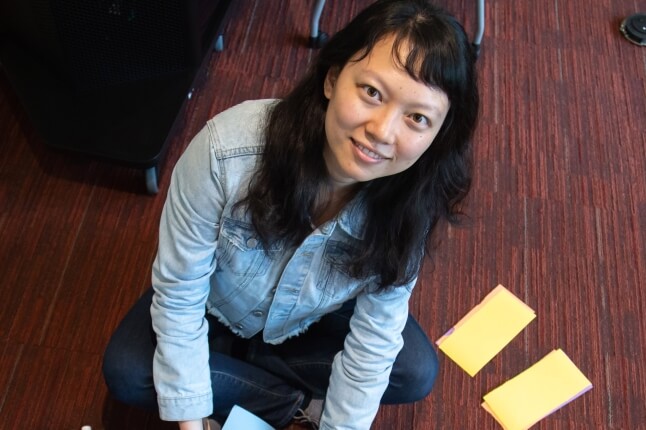News
The CDC estimates that 70 percent of medical decisions depend on laboratory test results, yet a 2018 NORC survey found that 40 percent of patients skipped at least one recommended test during the previous 12 months.
“Let’s face it, lab testing is inconvenient,” said Nabeel Quryshi, A.B. ’23, a molecular and cellular biology concentrator at Harvard University. “People are busy—they have careers, kids, other responsibilities. However, if 40 percent of patients aren’t compliant, that means 40 percent aren’t getting the vital health care information that they need.”
Evera Technologies, a startup Quryshi founded in November, seeks to boost compliance by making lab testing more convenient. The company enables patients to schedule an on-demand, at-home blood draw by a mobile phlebotomist.
The startup, which currently operates in the San Francisco Bay Area and charges $39 per appointment, develops the logistics technology and directly manages the labor pool necessary to bring health care to the home.
Evera Technologies was named the Gold Medal Grant Winner of the McKinley Family Grant for Innovation and Entrepreneurial Leadership in Commercial Enterprise in the i3 Harvard College Innovation Challenge, sponsored by the Technology and Entrepreneurship Center at the John A. Paulson School of Engineering and Applied Sciences (SEAS), earning Quryshi a $12,500 award.
The startup, which is building momentum for its phlebotomy services, emerged during the height of the COVID-19 pandemic. The entrepreneurially-minded Quryshi, who had launched a stem cell banking company as a freshman, decided to start a venture to make COVID-19 testing easier.
The first iteration of Evera Technologies provided on-demand, at-home COVID-19 testing; the startup quickly grew to several mobile testing specialists who were performing hundreds of house calls a week.
As the pandemic began to recede in the Bay Area, Quryshi decided to pivot and focus the company on lab testing.
“At home-based blood draws have actually been shown to boost compliance to 98 percent. We are solving a big problem on the compliance side, because for the patient, it is so much more convenient,” he said. “You can be on your couch, your dog in your lap, and the needle’s in your arm. That is the future we envision for blood draws.”
Evera Technologies enables patients to schedule an on-demand, at-home blood draw by a mobile phlebotomist. (Photo provided by Evera Technologies)
The increasing popularity of telemedicine, largely brought about by the COVID-19 pandemic, will fuel increased demand for mobile lab testing services, Quryshi said. And he has big visions for his startup’s future.
Quryshi plans to eventually outfit mobile vans with medical equipment to create mobile traveling laboratories and clinics that could offer a battery of services at homes or central locations in neighborhoods that are far from brick-and-mortar labs.
“With medical devices getting smaller and more powerful each year, we now have the unique ability to create a new ecosystem around traveling mobile health care,” he said.
Quryshi envisions creating traveling mobile laboratories as well as vans for other services such as dentistry, optometry, X-rays, dialysis, and even entire primary care clinics.
While that vision is still down the road, Quryshi plans to use some of the funds from the i3 Innovation Challenge to start outfitting vans. The financial support, as well as the advice from Paul Bottino, Executive Director of Innovation Education, and other entrepreneurship experts in the SEAS course Startup R&D (ES 95r) has been essential to the success of Evera Technologies.
The biggest challenge Quryshi faces now is determining who pays for Evera’s at home services. While patients value the convenience that Evera offers, Quryshi is pursuing models in which other entities pay on behalf of the patient, such as companies that would include Evera as a health benefit for their employees.
He also plans to expand Evera’s reach beyond the Bay Area and target areas of the country with limited access to health care services.
“At Evera, we believe access to health care is a human right. We want to perform house calls and set up mobile clinics to extend the reach of heath care resources to people in need,” he said.
Ultimately, Quryshi foresees a world in which health care is a click away and trips to the hospital or clinic are reserved only for extreme circumstances.
“We’re creating a new health care system that is fundamentally built around the patient experience, the way it should be,” he said.
Topics: Entrepreneurship
Cutting-edge science delivered direct to your inbox.
Join the Harvard SEAS mailing list.
Press Contact
Adam Zewe | 617-496-5878 | azewe@seas.harvard.edu




